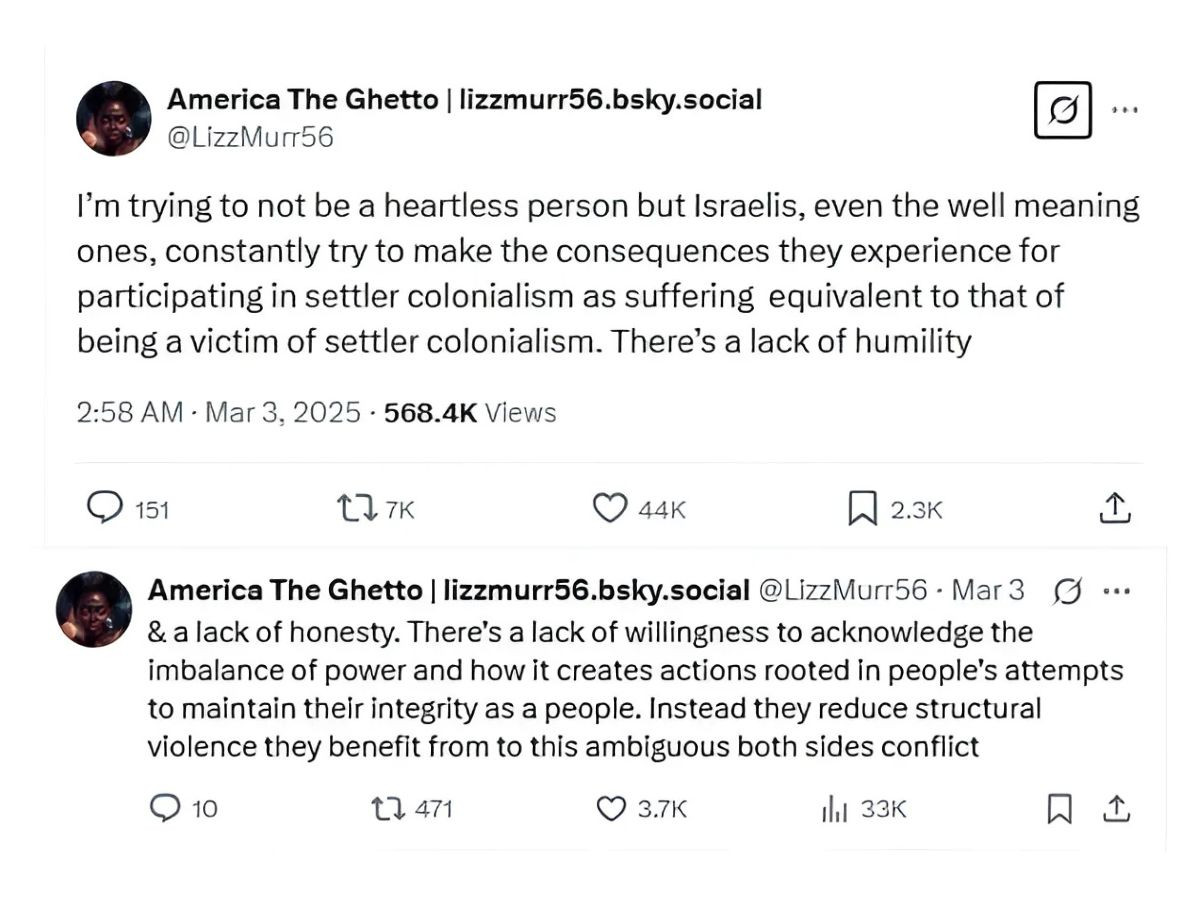At the 2025 Academy Awards, No Other Land made history by winning the Oscar for Best Documentary Feature, a groundbreaking moment for Palestinian cinema and a rare public recognition of the struggle against occupation on a global stage.
The film, which chronicles the forced displacement of Palestinians in Masafer Yatta, prevailed over a strong field of nominees, including Porcelain War (about artists surviving the war in Ukraine) and Black Box Diaries (from Japanese filmmaker Shiori Ito, confronting sexual violence).
While the Academy has a history of awarding politically charged documentaries, none have ever directly confronted the realities of Israeli occupation, with this being the first Palestinian film ever to win the award, making No Other Land a landmark achievement.
The film’s co-directors, Palestinian journalist Basel Adra and Israeli journalist Yuval Abraham, delivered one of the most politically charged acceptance speeches in recent memory, calling for an end to ethnic cleansing and recognizing the brutal inequalities between Palestinians and Israelis under Israeli occupation.
Their speeches call for a political solution beyond ethnic supremacy, condemning the ethnic cleansing of the Palestinian people, a moment that once seemed unthinkable at the Oscars. Basel Adra boldly stated:
“'No Other Land' reflects the harsh reality that we’ve been enduring for decades and still persist as we call on the world to take serious actions to stop the injustice and to stop the ethic cleansing of the Palestinian people.”
Basel Adra had been filming his home region of Masafer Yatta for years, documenting the demolitions and settler violence that his community faced daily.
In Masafer Yatta, a rural community in the Palestinian West Bank, tensions culminated in late 1999 when the Israel Defense Forces (IDF) issued eviction orders to all Palestinians living in Firing Zone 918.
In a sweep carried out overnight, Israeli security forces forcibly removed some 700 residents from their homes. Soldiers loaded families onto trucks and dumped them at the outskirts of the nearby town, then proceeded to demolish dozens of homes, cisterns and livestock pens in their villages, in addition to confiscating all personal property and sealing all wells.
Since the 2022 Israeli court ruling, the situation on the ground in Masafer Yatta has sharply deteriorated for the Palestinian residents. Israeli authorities have intensified measures to create what human rights groups describe as a “coercive environment” designed to push people out
This has included regular home demolitions, military exercises within and around the villages, movement restrictions, and unchecked settler attacks.
As of early 2025, roughly 1,000 people in Masafer Yatta’s remaining villages continue to resist expulsion, living in what observers call an “open-air training zone” with the constant threat of demolitions, military drills, and violence hanging over their heads.
The film is raw, personal, and immediate, constructed largely from real-time footage shot over five years.
The cinematography is an extension of the filmmakers’ activism, with the camera often shaking as it follows protests, demolitions, and confrontations. This kinetic energy pulls the audience into the harrowing reality of life under occupation.
Critics have praised this immersive style, with RogerEbert.com describing the film as turning “the camera into a weapon for truth and resistance.”
Audiences, too, responded with enthusiasm and the film won audience awards at multiple festivals, including in Berlin, where it first made waves.
When the documentary premiered at the Berlin International Film Festival, Adra’s journey to attend took over 30 hours due to military checkpoints, whereas Abraham traveled freely, underscoring the very injustices their work seeks to expose.
The collaboration itself is thus symbolic of the stark difference in Palestinian and Israeli reality—while Adra’s movement is restricted by military law, Abraham enjoys the freedoms of civilian law, a disparity highlighted in the film.
Despite this acclaim, No Other Land struggled to secure U.S. distribution due to its "politically sensitive" content, highlighting the barriers that Palestinian voices face in global cinema.
It was only through a one-week qualifying run in New York that the film became eligible for the Oscars, contrasting sharply with how easily American and British films find global distribution.
In light of this, Adra's Oscar winning speech weighed heavy.
In a room full of Hollywood's stars, many of whom have, since October 7th, openly come out in support of the IDF, Adra spoke with unflinching clarity. Expressing his hope that his newborn daughter would not have to endure the same life of fear he had, he openly condemned Israel's forcible settler colonial occupation and displacement:
“About two months ago I became a father and my hope to my daughter that she would not have to live the same life I’m living now, always fearing settler violence, home demolitions and forcible displacements that my community Masafer Yatta is living and facing everyday on the Israeli occupation.”
Following this, co-director Abraham’s words added another layer of poignancy, acknowledging the deep-rooted inequalities between Israelis and Palestinians, and challenging the global powers—especially the United States—for their role in maintaining the status quo:
“There is a different path, a political solution without ethnic supremacy, with national rights for both of our people. And I have to say as I am here, the foreign policy in this country is helping to block this path."
But some of his remarks sparked controversy amongst the global community:
“We made this, we made this film Palestinians and Israelis because together our voices are stronger. We see each other – the atrocious destruction of Gaza and its people which must end. Israeli hostages brutally taken in the crime of October 7th which must be freed.
Many on social media wonder: why the need to mention the Israeli hostages in this particular moment?


Abraham's remarks arguably downplay the active genocide and ethnic cleansing of the Palestinian people by framing their suffering as merely “intertwined” with that of Israelis.
Why is it that Palestinian voices are only amplified in Western spaces when sanitized through the presence of an Israeli counterpart?
Adra’s story, as vital as it is, needed Abraham to be heard—because in the eyes of the West, a Palestinian voice alone is never enough.
This stark reality exposes the insidious way in which Palestinian stories are only deemed palatable when filtered through Israeli validation, rather than recognized for the urgent, brutal truth they tell.
An excerpt from Mohammed El-Kurd's Perfect Victims: And the Politics of Appeal has also been making the rounds on social media, calling into question the politics of "co-directing" and the hand this has in allowing widespread recognition of such a narrative, one that is otherwise quelled:
Palestinian voices are systematically silenced unless they come with an Israeli stamp of approval. And even when they do get a platform, there’s always an expectation that they must be “balanced” in their condemnation.
As long as Western institutions continue to frame Israel’s actions as “complex”, rather than calling them what they are, there will always be a need for an Israeli mic to amplify Palestinian voices.
So is this a win to be celebrated? Palestinian activist and chef Jinan Deena weighed in:
While No Other Land is undeniably a triumph for Adra and the Palestinian cause at large, Abraham’s comments reinforce a dangerous narrative—one that falsely equates Israeli losses with the ongoing, systematic destruction of Palestinian lives, homes, and history at the hands of the state of Israel.
Another well-known Palestinian activist and content creator, Subhi, formerly @sbeih.jpg on Instagram, rejects what he calls "normalization" of Israel:
Historically, the Academy has recognized politically sensitive documentaries, but often in ways that align with Western geopolitical interests.
20 Days in Mariupol (2023) won in 2024, offering a harrowing account of the war in Ukraine. Similarly, For Sama (2019) documented the Syrian civil war from the perspective of a young mother, earning global acclaim, and The Edge of Democracy (2019) tackled political corruption in Brazil, just as If a Tree Falls (2011) explored eco-terrorism and radical environmental activism.
While all these films challenged power structures, none were as openly critical of Israel or Western complicity in an ongoing occupation. No Other Land broke this unspoken barrier, making it one of the most politically significant Oscar wins in recent memory.
This raises the question of whether the Oscars are genuinely evolving or if this remains an anomaly.
Historically, the Academy has been dominated by American and British films. Over 73% of Oscars in major categories have gone to American productions, with British films making up another 13%.
Global representation has remained limited, though the documentary category has been more open to international voices. In 2024, all five nominees for Best Documentary Feature were international films, reflecting a slow but meaningful shift.
The recognition of No Other Land suggests that the Academy is at least willing to engage with more challenging narratives, but it remains to be seen whether this will translate into sustained support for wilfully silenced stories, or if this was merely a token moment of progress.
One of the most crucial aspects of this win is its potential impact on the industry.
Historically, films about Palestine have faced systemic challenges in Hollywood, where pro-Palestinian narratives have often been met with silence or outright censorship.
The difficulty No Other Land encountered in securing distribution highlights how risk-averse many Western studios remain when it comes to stories that challenge dominant geopolitical alliances.
However, the film’s success may embolden other filmmakers to push forward, proving that there is an audience for these stories and that they deserve institutional recognition.
If No Other Land has proved anything, it is this: even in the belly of the beast, visceral storytelling will shatter the illusion of political silence, even if for a single, unflinching moment.



COMMENTS (2)
Comments are moderated and generally will be posted if they are on-topic and not abusive.
For more information, please see our Comments FAQ